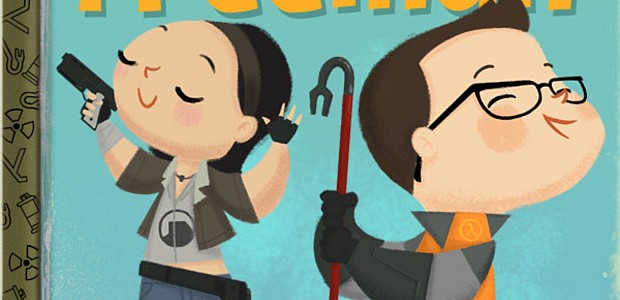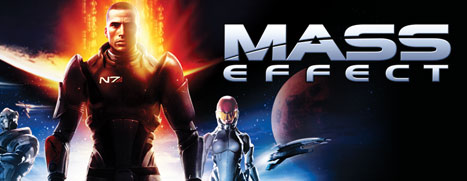
Are mute heroes better than verbose heroes? Does a voice-acted player character infringe on your ability to put yourself into the story? In this week's debate, Logan says "Yes," while his character says nothing. He wants to be the character he’s playing, not merely control him, and that’s easier to do when the character is silent. T.J. had a professional voice actor say "No." He thinks giving verbalized emotions and mannerisms to your in-universe avatar makes him or her feel more real.
Read the debate below, continue it in the comments, and jump to the next page for opinions from the community. Logan, you have the floor:
Logan: BioShock’s Jack. Isaac Clarke from Dead Space. The little boy from Limbo. Portal’s Chell. Gordon Freeman. These are some of the most unforgettable characters I’ve ever played, and they all made their indelible impressions on me without speaking a single word. In fact, they made such an impression because they didn’t say a word. By remaining silent throughout, they gave me room to take over the role, to project myself into the game.
T.J.: All of the games you mentioned were unforgettable narratives. But everything memorable about them came from the environments, situations, and supporting casts. Gordon Freeman is a great example. What can you really say about him, as a person? I find Shepard’s inspirational speeches to the crew in the Mass Effect games far more stirring and memorable than almost anything I’ve experienced in a silent protagonist game. I was Shepard, just as much as I was Gordon. But I didn’t have the alienating element of not having a voice making me feel less like a grounded part of the setting.
Logan: Ooh, Shepard. That was cold. I’ll happily agree that some games are better off with fully written and voiced protagonists—and Shepard’s a perfect example. But it’s a different matter, I think, with first-person games in particular, where your thought processes animate the narrative: “OK, if I jump into a portal here, I’ll shoot out of the wall there and land over yonder.” In this way I’m woven into the story, as a product of my own imagination. If the character is talking, I’m listening to his or her thoughts—and they sort of overwrite my own. It can be great fun, but it’s a more passive experience.
T.J.: First-person shooters are probably one of the best venues for silent protagonists, but lets look at BioShock and BioShock Infinite. I definitely felt more engaged by Booker, who responded verbally to the action, the story twists, and the potent emotions expressed by Elizabeth... than I did by Jack, who didn’t so much as cough at the chaos and insanity around him.
Logan: But was the result that BioShock Infinite was a better game, or just that it delivered a traditional main character?
T.J.: Booker? Traditional? Did we play the same game? I mean, it’s a tough call to say which was out-and-out better, as there are a lot of factors to consider. But zooming in on the protagonist’s vocals (or lack thereof) as an added brushstroke on a complex canvas, Infinite displays a more vibrant palette.
Logan: Do you think that Half-Life 2, in retrospect, is an inferior game as a result of its silent protagonist?
T.J.: Half-Life 2 was great. Great enough that we gave it a 98. But imagine what it could have been like if Gordon had been given the opportunity to project himself onto his surroundings, with reactive astrophysics quips and emotional back-and-forth to play off of the memorable cast around him? We relate to characters in fiction that behave like people we know in the real world. So yeah, I’ll take that plunge: I think I would have bonded with Freeman more, and therefore had a superior experience, if he hadn't kept his lips sewn shut the whole way.
Logan: A scripted and voiced Gordon Freeman may or may not have been a memorable character, just like a scripted and voiced Chell from Portal might have been. But in a sense, that’s the problem! Because some of my best memories from games with silent protagonists are the memories of my own thoughts and actions. I remember staring at the foot of a splicer in BioShock and realizing that the flesh of her foot was molded into a heel. I was so grossed out that I made this unmanly noise, partway between a squeal and a scream. I remember getting orders shouted at me in FEAR and thinking, "No, why don’t you take point.” I’m glad these moments weren't preempted by scripted elements.
T.J.: You were staring at the Splicers’ feet? Man, in a real underwater, objectivist dystopia ruined by rampant genetic modification, you’d totally be “that one guy” who just stands there dumbfounded and gets sliced into 14 pieces.
Logan: No, I’d be the guy at Pinkberry with his mouth under the chocolate hazelnut nozzle going “Would you kindly pull the lever?” But my point is, I remember what I did and thought at moments throughout all of my favorite games, and those are experiences that are totally unique to me. And that’s at least part of why I love games so much—because of unique experiences like that.
T.J.: I see what you’re getting at. Likewise, a lot of my love for games is driven by their ability to tell the kinds of stories other media just aren’t equipped for. Silent protagonists take us further beyond the bounds of traditional narratives, accentuating the uniqueness of interactive storytelling. That being said, really good voiced protagonists—your Shepards, your Bookers, your Lee Everetts—never feel like a distraction from the mutated flesh pumps you come across. When the execution is right, they serve to enhance all of those things, and lend them insight and believability.
There’s nothing like being pulled out of the moment in Dragon Age: Origins when the flow of an intense conversation stops so the camera can cut to the speechless, distant expression of your seemingly-oblivious Grey Warden.
Logan: Oh yeah, there’s no question that voiced protagonists have their moments. But they’re not my moments, and those are the ones I enjoy the most in games. Valve seems to understand this intuitively, and that’s why it’s given us two of the most memorable characters in videogame history: because I think the developers deliberately build into their games moments that they all understand will be uniquely owned by the players; “a-ha!” moments when the solution to a puzzle suddenly snaps into focus, or narrative revelations like watching horseplay between Alyx and Dog that instantly tell you a lot about how she grew up. Voiced protagonists can give us wonderful characters; silent ones let me build my own.
That’s the debate! As always, these debates are exercises meant to reveal alternate viewpoints—sometimes including perspectives we wouldn’t normally explore—and cultivate discussion, so continue it in the comments, and jump to the next page for more opinions from the community.
https://twitter.com/hawkinson88/status/325060938120183808
@pcgamer it really depends on the writing. Some voiced characters are amazing, and some are whiny and annoying.— Ryan H (@kancer) April 19, 2013
@pcgamer In many cases, yes. I am forced to substitute the absence of a developed personality with my own words and thoughts. I like that.— Rocko (@Rockoman100) April 19, 2013
@pcgamer The volume of the protag doesn't matter, only the skill of the writer: hero voice is just one tool of many in a master writer's box— Jacob Dieffenbach (@dieffenbachj) April 19, 2013
@pcgamer The most interesting characters are the ones with a history, with regrets. Blank characters don't have that.— Devin White (@D_A_White) April 19, 2013
@pcgamer Most voiced characters seem to disappoint. I think silent ones express the storyline better through visuals which I prefer.— Casey Bavier (@clbavier) April 19, 2013
@pcgamer Definitely voiced. Having an NPC talk to you directly, then act as if your lack of response is totally normal feels eerily wrong.— Kirt Goodfellow (@_Kenomica) April 19, 2013
@pcgamer Silent! #YOLO— Michael Nader (@MNader92) April 19, 2013

















